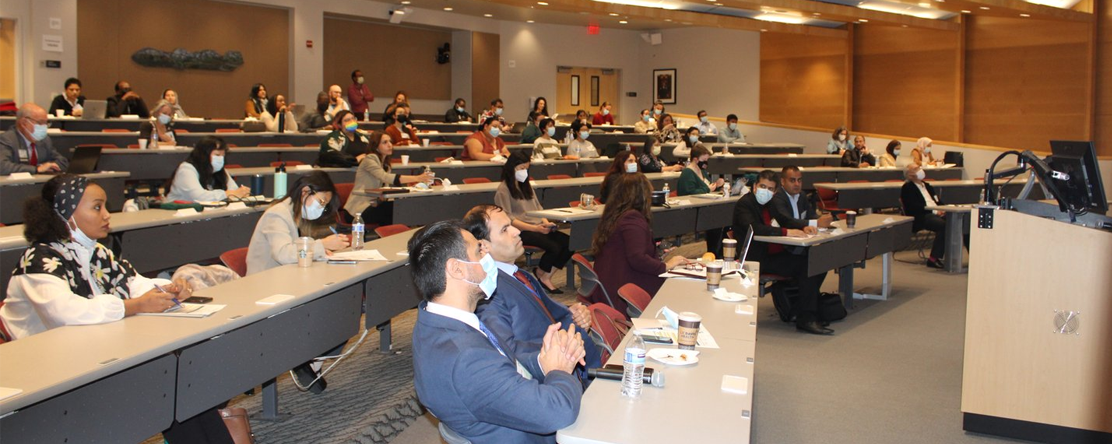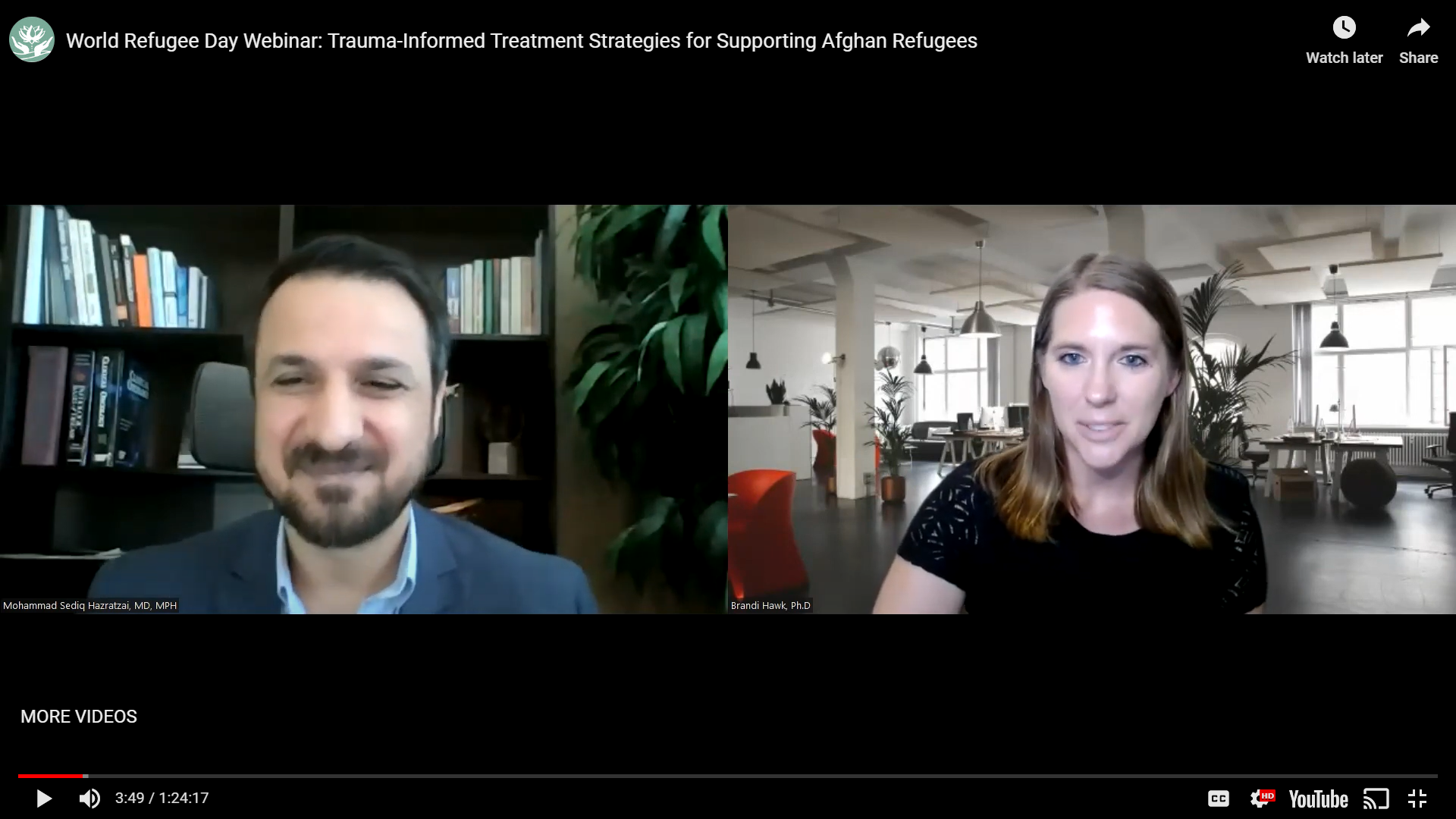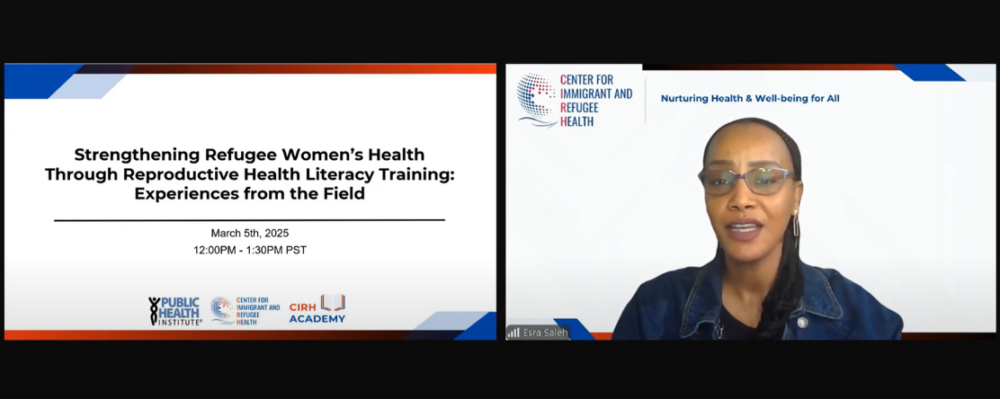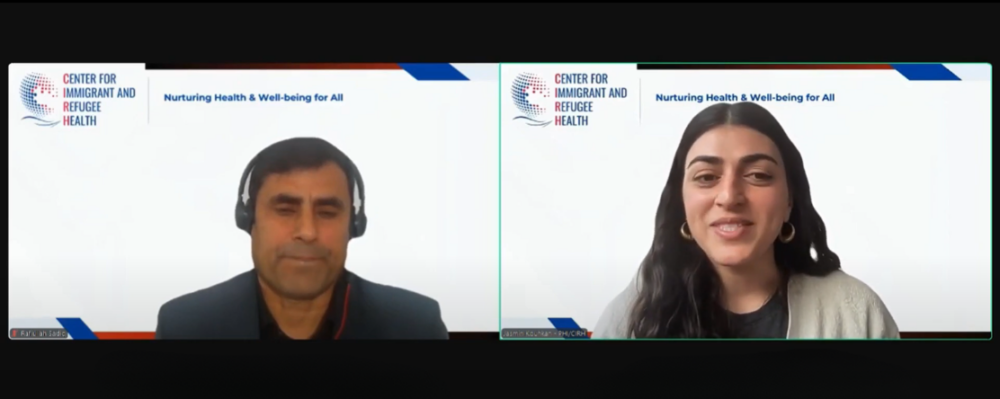
Webinar Recording: Trauma-Informed Treatment Strategies for Supporting Afghan Refugees

In June 2023, PHI’s Lotus Project hosted a webinar titled “From Crisis to Care: Trauma-Informed Treatment Strategies for Supporting Afghan Refugees.” This interactive event, hosted by PHI’s Dr. Mohammad Sediq Hazratzai, a trainer with the Lotus Project and director of our Sehat Initiative, dove deep into the unique challenges faced by Afghan refugees and the necessity for trauma-informed care in addressing their mental health needs.
Watch the recording to hear from panel members who are leading experts in the fields of refugee health, psychiatry, and psychology. Their insights offer a comprehensive perspective on trauma-informed care tailored to the unique needs of Afghan refugees. Viewers will also learn about practical, culturally competent treatment strategies that can be implemented to support these individuals’ mental health, overall well-being, and secondary and vicarious trauma.
Background
The 2021 geopolitical upheaval in Afghanistan and a precipitated exodus has significantly increased the number of Afghan refugees seeking safety and protection. This abrupt mass displacement presents a pressing need for understanding and addressing the mental distress and psychosocial challenges of a very vulnerable population that has experienced extensive trauma, loss, and post-resettlement disorientation and duress.
Learning Objectives
As a result of attending this workshop, participants will be able to:
- Become familiar with the principles of trauma-informed treatment and how adversities, displacement, and resettlement contribute to traumatic stress in Afghan and other refugee populations.
- Understand how to provide culturally competent mental health assessments and treatments to Afghan refugees while respecting cultural beliefs, norms, and practices, and how to address language barriers and cultural stigma associated with severe mental distress without overlooking, over-pathologizing, or overmedicalizing suffering.
- Recognize the potential for secondary traumatic stress among providers working with traumatized populations and learn strategies for self-care and burnout prevention.
See the recording and access the slides:
Speaker Slides:
Omar Reda, MD, Board-Certified Psychiatrist
Brandi Hawk, PhD, Psychologist, Assistant Clinical Professor, University of California, Davis
PHI’s Lotus Project provides technical assistance and resources regarding the implementation of culturally competent and evidence-based interventions and promising practices to reduce immediate distress from exposure to traumatic events.
Originally published by The Lotus Project
Work With Us
You change the world. We do the rest. Explore fiscal sponsorship at PHI.
Support Us
Together, we can accelerate our response to public health’s most critical issues.
Find Employment
Begin your career at the Public Health Institute.



